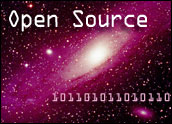IBM (NYSE: IBM) this week disclosed, in a barrage of announcements, collaboration with several key players in the increasingly popular Linux market, taking the open-source operating system (OS) another step towards broader acceptance.
DB2 for instance, IBM’s database software, will be distributed on the Pacific HiTech, Inc. version of Linux. In a move possibly to step up its competition with Oracle, IBM developed a version of DB2 to run on Linux.
24-hour telephone customer support will also be provided, as detailed in the agreement. And both companies have decided on future collaborations on server software. Web servers utilize database technology because of the efficiency of storing the massive amounts of data necessary to maintain a competitive e-commerce presence.
Big Blue also announced that four versions of Linux– Caldera, Pacific HiTech, Red Hat and SuSE– have been certified for use with its Netfinity 3000 and 5000 servers. KeyLabs, an independent organization, conducted the certification.
“A growing number of our customers are considering Linux for their business applications,” explained Tom Figgatt, Linux segment executive for the IBM Netfinity Servers group. He indicated that taking the step to certify the major Linux players is an important one for IBM.
In Other IBM & Linux News
The ServerProven Solutions program, administered by IBM to test software compatibility with its Netfinity server line, has been expanded to include vendors supporting Linux. Applix, Inc. (NASDAQ: APLX), maker of Applixware, an office productivity suite, is the first Linux-based product to meet ServerProven criteria.
New Linux device drivers for IBM’s ServRAID adapter will be made available through its Linux distribution partners and the company’s Web Site. Additionally, a new online forum has been announced, where customers, developers and resellers can exchange ideas and post questions regarding Linux on Netfinity servers.
A Converged File System For Linux
SGI (NYSE: SGI) and Veritas Software Corp. (Nasdaq: VRTS) last week announced collaboration on a converged file system for Linux, and both companies hope to further the advance of what some analysts have predictably called the open-source revolution.
“The lack of a journaled file system is the number one issue facing the Linux community,” stated John R. Vrolyk, senior vice president of SGI’s Computer Systems Business Unit. There are, of course, several competing “number one” issues at the moment. But, according to Vrolyk, the type of collaboration exhibited by SGI and Veritas may help to avoid “the fragmentation in the broader UNIX community and will have a positive impact on the future of Linux.”



































Social Media
See all Social Media